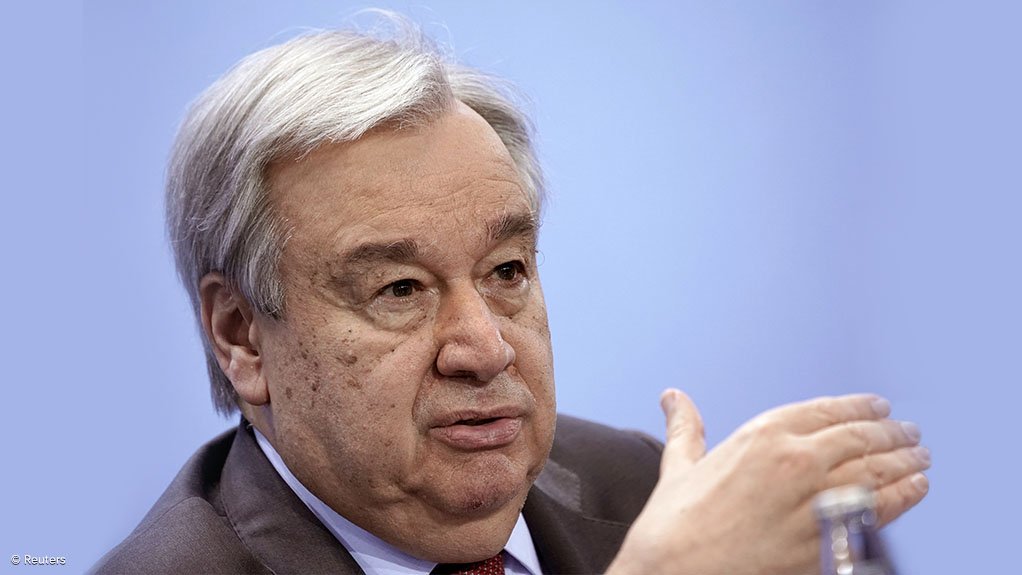The war in Ukraine was setting in motion a three-dimensional crisis – centred on food, energy and finance – which was producing “alarming cascading effects” to a world economy still recovering from Covid-19 and undergoing dramatic shifts owing to climate change, findings released on April 13 by the United Nations (UN) Global Crisis Response Group (GCRG) said.
The GCRG’s new study – titled ‘Global impact of war in Ukraine on food, energy and finance systems’ and coordinated by UN Conference on Trade and Development secretary general Rebeca Grynspan – said the trifecta of crises would leave “deep and long-lasting scars”.
“We are now facing a perfect storm that threatens to devastate the economies of developing countries. The people of Ukraine cannot bear the violence being inflicted on them, and the most vulnerable people around the globe cannot become collateral damage in yet another disaster for which they bear no responsibility. Our world cannot afford this. We need to act now,” said UN secretary general António Guterres.
He called for urgent, concrete and coordinated action to help those countries and communities most at risk to avert the interlinked crises.
“We can do something about this three-dimensional crisis. We have the capacity to cushion the blow,” he said.
The GCRG was established by the UN secretary general’s office. It’s main aim is to develop coordinated solutions to interlinked crises in collaboration with governments, the multilateral system and sectors.
Its steering committee is chaired by UN deputy secretary general Amina Mohammed.
The GCRG’s goal is to help vulnerable countries avert large-scale crises through high-level coordination and partnerships, urgent action and access to critical data, analysis and policy recommendations. The development of the latest report is the first in a planned series of similar briefs.
PERFECT STORM
Russia and Ukraine provide about 30% of the globe’s wheat and barley.
Russia remains the world’s largest natural gas exporter, second-largest oil exporter and a significant producer of fertilisers.
The war has, therefore, strongly affected food, energy and financial markets, sending commodity prices to record highs.
The GRCG report said the global economy was forecast to contract by 1% this year.
It noted that preliminary analysis suggested that as many as 1.7-billion people in 107 economies were exposed to at least one of three risks. Most of those exposed were in Africa, Asia and the Pacific, as well as Latin America and the Caribbean.
“When combined with the impacts of the Covid-19 crisis and climate change, the exposure to just one risk is dire enough to cause debt distress, food shortages and blackouts,” the GRCG said.
URGENT ACTION
The brief proposed a series of immediate to longer-term recommendations to avert and respond to the triple crises, including the need to keep markets and trade open to ensure the availability of food and agricultural inputs such as fertiliser and energy.
It also called for international financial institutions to urgently release funding for the most at-risk countries, while making sure there were enough resources to build long-term resilience to such shocks.
Beyond keeping markets open and ensuring that food is not subjected to export restrictions, the brief urged the prompt provision of funds for humanitarian food assistance. Food producers, who now face higher input and transport costs, were said to urgently need support for the next growing season.
The brief also called on governments to use strategic stockpiles and additional reserves to help to ease the energy crisis in the short term.
“Now is also the time to turn this crisis into an opportunity. We must work towards progressively phasing out coal and other fossil fuels, and accelerating the deployment of renewable energy and a just transition,” Guterres said.
The GRCG brief also asked the international financial system, including Group of 20 countries and development banks, to provide flexible, urgent and sufficient funding for least-developed countries in particular, as well as relief from debt servicing under current conditions.
“We need to pull developing countries back from the financial brink. The international financial system has deep pockets,” said Guterres.
He also asked for funds to be made available to economies that needed them most so that governments can avoid default, provide social safety nets for the poorest and most vulnerable, and continue to make critical investments in sustainable development.
“Above all, this war must end. We need to silence the guns and accelerate negotiations towards peace, now. For the people of Ukraine. For the people of the region and for the people of the world,” he added.
The launch of the findings comes ahead of the 2022 Spring Meetings of the International Monetary Fund and the World Bank Group from April 18 to 24.
EMAIL THIS ARTICLE SAVE THIS ARTICLE ARTICLE ENQUIRY
To subscribe email subscriptions@creamermedia.co.za or click here
To advertise email advertising@creamermedia.co.za or click here











